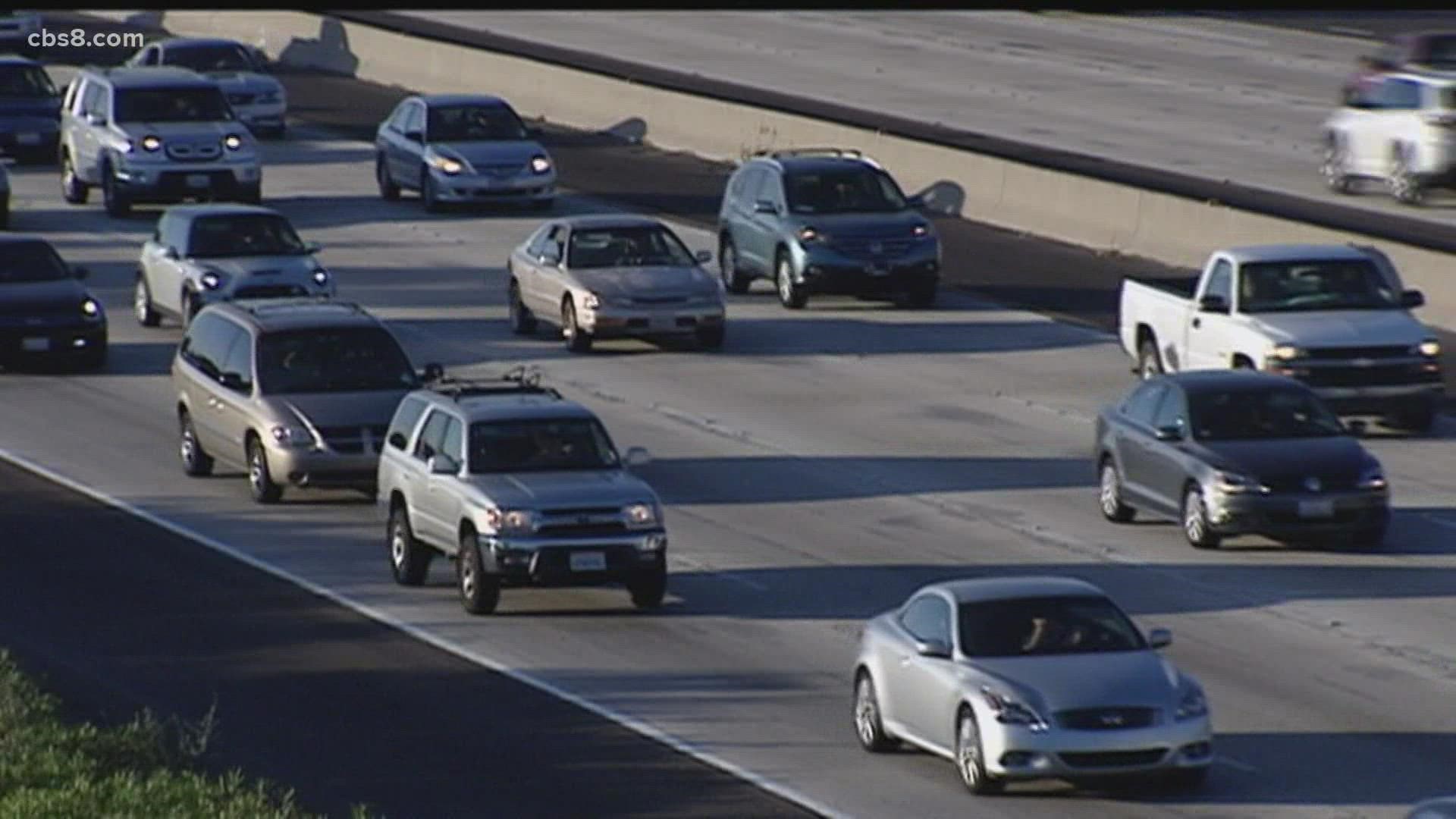SAN DIEGO COUNTY, Calif. — The San Diego Association of Governments' board of directors voted in favor of the $160 billion regional plan Friday. The question remains on how they're going to pay for it.
The mileage tax that has everyone so upset is something SANDAG says will be decided on by the voters.
The ambitious 30-year plan could include no-cost public transit and a 200-mile, $43 billion regional rail network.
The plan has come under fire in recent weeks, largely due to several taxes the transit agency has proposed to fund the plan. A four-cents-per-mile road usage tax proposal and two half-cent regional sales taxes proposed for 2022 and 2028 were envisioned as a way to help fund SANDAG's long-term regional plan.
However, last week SANDAG's elected leadership -- specifically Encinitas Mayor and Board Chairwoman Catherine Blakespear and vice chairs San Diego Mayor Todd Gloria and National City Mayor Alejandra Sotelo-Solis -- announced they didn't support inclusion of the road usage tax.
"This is a visionary plan that needs broad public support to be realized," Blakespear said. "The road-use charge represents one of the long-range options on the table for replacing the gas tax. And while the principles behind such a charge are well-understood, the mechanics of how it would be implemented are not.
"The fee is unnecessary for the plan to succeed," she said. "That is why I asked, together with board leadership, to have it struck from the regional plan, and the board agreed."
"While I understand the principles behind a road usage charge, our region has not done nearly enough to expand access to public transit," said San Diego Mayor Todd Gloria, vice chair of the board and the member with the most heavily-weighted vote. "Residents must have feasible and accessible transportation alternatives other than a car for a road usage charge to be effective."
The Democratic dissent on the road usage plan looked to be a fatal blow for the plan, but the board -- made up of representatives from the 18 municipalities in the county and from the county at large -- cut the tax and passed the plan by 57.8% to 42.1%. The board weighs votes proportionally by a city's population. The representatives from Carlsbad, Coronado, El Cajon, Oceanside, Poway, San Marcos, Santee and Vista all voted no.
According to state law, the transportation plan needed to be adopted by year's end and must demonstrate plans to significantly reduce greenhouse gas emissions.
Following the vote adopting the plan, the board directed SANDAG staff to find alternative funding solutions to the road-use charge.
Environmental groups celebrated the decision, which they claimed as a huge first step toward reducing greenhouse gas emissions, decreasing air pollution and meeting the needs of the minority communities who have been hit hardest by the COVID-19 pandemic.
"The planet is burning and our current transportation system is heavily contributing to the fire, damaging our lungs and failing the low-income communities of color who depend on it the most," said Carolina Martinez, climate justice director of the Environmental Health Coalition. She said that 93% of San Diego's low-income residents "do not have access to fast and frequent transit and the 2021 Regional Plan provides critical lifelines to change that."
Other groups worried the dealings to get the plan across the finish line were done out of sight of the public.
"Whether you vote aye or nay, there needs to be a formal, transparent process before coming to the SANDAG board room by which each of you, as representatives of your agencies, collect input from your fellow municipal elected leaders and the constituents you collectively represent," said Haney Hong, president and CEO of the San Diego County Taxpayers Association during his testimony in the meeting. "Without debates at your member agency, there is no assurance that you are not simply voting for your own personal priorities."
Conservative groups balked not only at the price tag, but also a perceived unfairness as to how the plan would be funded, who would bear that burden and to what end.
"In SANDAG's Regional Transportation Plan, the only thing `regional' about it is the financial burden that will be on the back of every county resident," said Poway Mayor and former Chairman of the SANDAG Board Steve Vaus. "For people living in North or East County, they will be paying the taxes for something they will never use -- public transit."
SANDAG received more than 1,500 comments on the draft 2021 Regional Plan. Some were positive, but many were critical of the agency's proposed tax increases.
California has been testing charging around 2 cents per mile in pilot programs but has run into several issues. The state has experienced difficulty in how to report the by-mile-usage and if miles should count when out of state. It is unclear how SANDAG would circumvent that issue, but the agency does claim to want to wait until some mass transit projects are completed.
More about SANDAG's regional plan can be found at sdforward.com.
WATCH RELATED: San Diego leaders speak out against SANDAG's new transportation plan (Dec 9, 2021)

